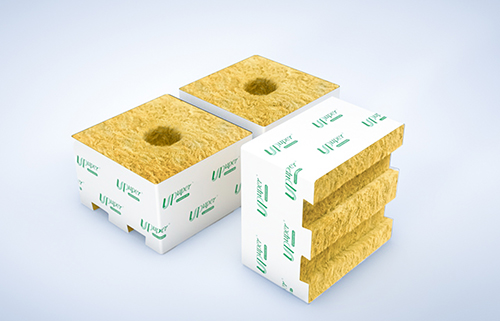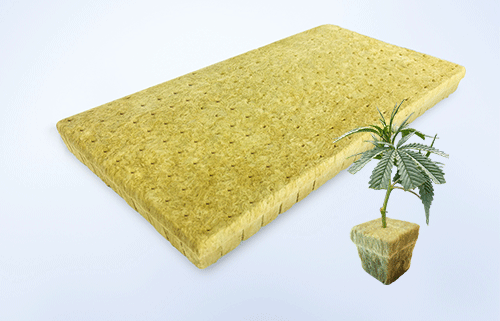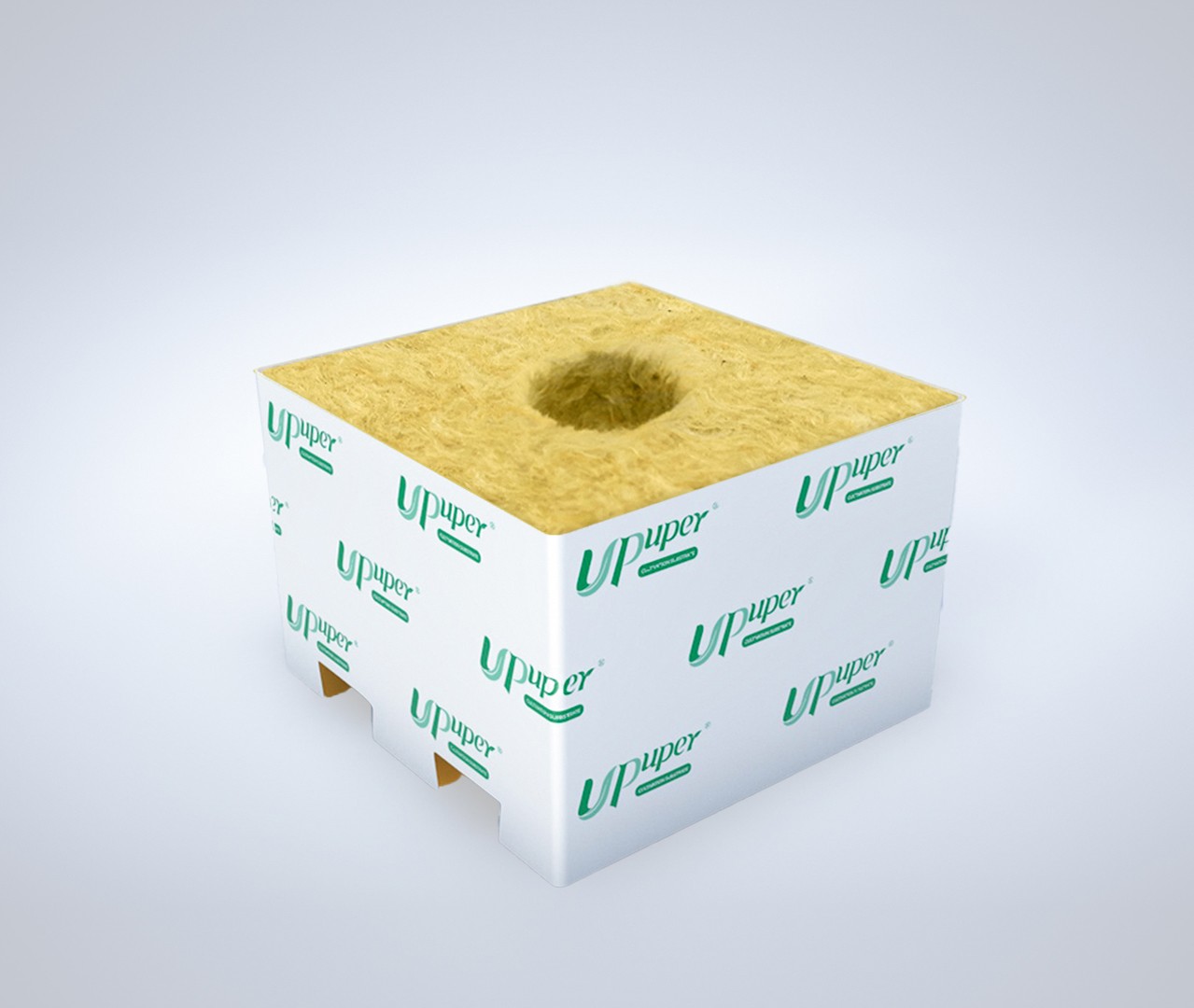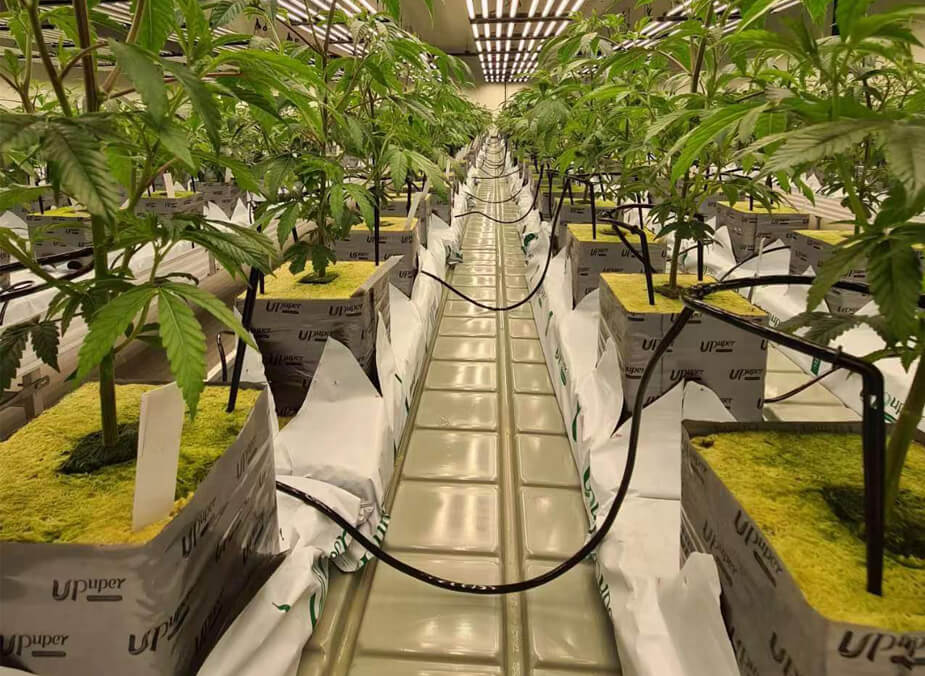Rockwool cubes are an essential tool for hydroponic gardening and greenhouse cultivation. They are widely used in seed propagation and plant nurseries due to their unique properties and benefits.
Composition of Rockwool Cubes
Rockwool cubes are made from spun rock fibers, usually from the volcanic rock basalt. These fibers are melted and then spun into thin strands, which are then compressed to create a material that resembles a sponge.This process creates a highly porous material that can hold large amounts of water and air. The water absorption capacity of rockwool cubes is around 80-90%, meaning that they can hold and distribute water evenly, providing a consistent water supply to the plants.The cubes are then cut into various sizes for different applications.

Fiber length and Thickness
Another important aspect is the fiber length and thickness of rockwool cube. The longer and thicker the fibers are, the better the drainage properties of the cubes will be. This is essential for the health of the plants, as it ensures proper moisture levels and prevents the roots from becoming waterlogged. The fiber length and thickness can also impact the stability of the cubes, making them less likely to break or crumble during handling.
Chemical Composition
When it comes to the chemical composition, they are primarily made up of silica, which is a natural element found in rocks and sand. This makes them non-toxic and safe for use in agricultural practices. Additionally, they have a neutral pH, which is ideal for most plants and allows for efficient nutrient uptake.
Benefits of Using Rockwool Cubes
Excellent Water Retention:
One of the biggest benefits of using them is their ability to retain water. The porous structure of these cubes allows them to hold onto moisture, ensuring that your plants have a constant water supply.
Great Air Circulation:
While they are great at holding onto water, they also allow for excellent air circulation. This balances out the moisture levels and prevents the roots from becoming waterlogged, promoting healthy root growth.

pH Neutral:
It has a neutral pH, making them ideal for a wide range of plants. Unlike soil, which can have a varying pH depending on its composition, it provide a consistent environment for your plants.
Reusable:
Rockwool cubes can be reused multiple times, making them a cost-effective option for avid gardeners. Simply remove the old plant and root system, rinse the cube in water and it is ready to use again.
Sterile Medium:
Another advantage of rockwool cubes is that they are sterile, meaning they do not contain any bacteria or fungi. This makes them a cleaner option for starting seeds and preventing diseases.
Biodegradability:
As they are made from natural materials, they can easily break down into harmless substances and do not leave any harmful residues in the environment. This makes them a sustainable choice for gardening and farming practices.
Using Rockwool Cubes
Ⅰ. Germination: Rockwool cubes are an excellent medium for seed germination. Simply place the seeds on top of a cube and maintain the appropriate moisture levels for successful germination.
Ⅱ. Rooting Cuttings: Rockwool cubes also work well for rooting cuttings. Place the cutting in a hole in the center of the cube, ensuring good contact between the stem and the cube. Keep the cube moist and in a warm, well-lit area until roots develop.
Ⅲ. Transplanting: Once your plants have developed a strong root system, they can be easily transplanted into another medium, such as soil or hydroponic systems. Simply remove the plant from the cube, gently loosen any roots that may have grown into the cube, and place it in its new location.

Maintaining Rockwool Cubes
Properly Soaking: Before use, it is important to thoroughly soak your rock wool cubes in water with a pH balance of 5.5-6.5. This ensures that the cubes are moist and ready to support plant growth.
Adjusting pH Levels: As mentioned earlier, rock wool cubes have a neutral pH, but they can absorb some of the nutrients you add to your watering solution, which can alter the pH. It is important to regularly check and adjust the pH levels to ensure your plants are receiving the appropriate nutrients.
Cleaning and Sterilizing: After each use, it is important to clean and sterilize your rock wool cubes before reusing them. This helps prevent the spread of any diseases and promotes healthy plant growth.
Application:
● Rockwool cubes are also an essential component in hydroponic systems, where plants are grown in a soil-free medium. The high water retention and drainage properties of these cubes make them perfect for hydroponic setups, providing the necessary moisture and aeration for healthy plant growth.
● In the field of greenhouse cultivation, rock wool cubes are commonly used as a substrate for plants. The cubes provide a stable base for the plants, as well as excellent water retention and aeration, promoting optimal growth and development.
● Moreover, rock wool cubes are suitable for seed propagation and plant nurseries. They provide a sterile and consistent environment for germinating seeds and growing young plants, ensuring higher success rates and healthier seedlings.

Rockwool cubes are a versatile and advantageous tool for agricultural practices. They have excellent water absorption and drainage properties, are made from natural materials, comply with environmental regulations, and have various applications such as hydroponics, greenhouse cultivation, and seed propagation. Consider using them in your gardening or farming endeavors for optimal results and minimal impact on the environment. As one of the leading companies in the industry,UPuper offers high-quality rockwool cubes that meet all the necessary standards and provide optimal performance.
Tags: rockwool grow cubes , Rockwool Cloning Plug






